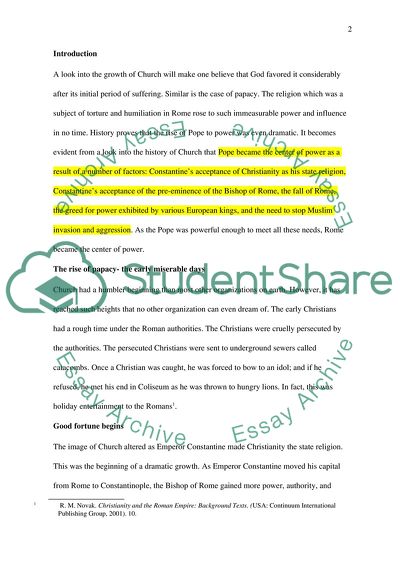Cite this document
(The Rise of Papacy in Rome Coursework Example | Topics and Well Written Essays - 1750 words, n.d.)
The Rise of Papacy in Rome Coursework Example | Topics and Well Written Essays - 1750 words. https://studentshare.org/religion-and-theology/1775239-the-rise-of-papacy-in-rome
The Rise of Papacy in Rome Coursework Example | Topics and Well Written Essays - 1750 words. https://studentshare.org/religion-and-theology/1775239-the-rise-of-papacy-in-rome
(The Rise of Papacy in Rome Coursework Example | Topics and Well Written Essays - 1750 Words)
The Rise of Papacy in Rome Coursework Example | Topics and Well Written Essays - 1750 Words. https://studentshare.org/religion-and-theology/1775239-the-rise-of-papacy-in-rome.
The Rise of Papacy in Rome Coursework Example | Topics and Well Written Essays - 1750 Words. https://studentshare.org/religion-and-theology/1775239-the-rise-of-papacy-in-rome.
“The Rise of Papacy in Rome Coursework Example | Topics and Well Written Essays - 1750 Words”. https://studentshare.org/religion-and-theology/1775239-the-rise-of-papacy-in-rome.


